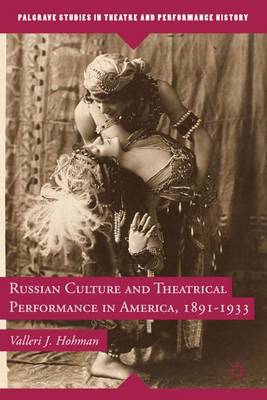Palgrave Studies in Theatre and Performance History
1 total work
Russian Culture and Theatrical Performance in America, 1891-1933
by V. Hohman
Published 12 July 2011
Between the 1890s and the 1930s, advancements in communication and travel encouraged widespread international cultural exchange, and Americans increasingly came into contact with Russian culture and theatrical performance. A number of factors, including emigration from Russia, world war, revolutionary activities in both Russia and the United States, and developments in modernism in the American theatre influenced the way those performances were received by American artists and audiences. Examining the work of impresarios, financiers, and the press as well as the artists themselves, Hohman demonstrates how a variety of Russian theatrical styles were introduced and incorporated into American theatre and dance.
